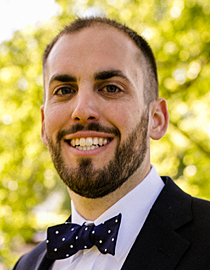
Culture
'The ecumenical task is so great, it cannot be carried out by the bishop alone; it must be shared by priests and people alike. In truth, the ecumenical task is the work and mission of the whole Church.'

Lester
This week we continue to commemorate the 50th Anniversary of the death of Cardinal Richard Cushing by highlighting the developments in ecumenism and interfaith relations that took place during his tenure as Archbishop of Boston. In this context, ecumenism refers to the relationship between Catholics and other Christians, while interfaith refers to the relationship between Catholics and non-Christians, such as Jews and Muslims. The cooperation between faiths was something Cardinal Cushing firmly believed was natural and necessary to benefit all of humanity.
In 1968, reflecting upon the work of the Second Ecumenical Council (Vatican II), Cardinal Cushing revealed that "actually, Vatican Council II merely gave expression to elements that were at work in the church for several generations. The way had been prepared for a long time.
Local examples of cooperation among different faiths can be found dating to the beginning of the Catholic community in Boston. There is no better example than the assistance received from Protestant families, famously among them former President John Adams, to build the Church of the Holy Cross in Boston, the first Catholic Church in New England, dedicated in 1803.
Though cooperation took place at a local level, Catholic doctrine provided little in the way of theological grounds or practical instruction for these interactions. The 1917 Code of Canon Law stated that a baptized person who denies or doubts the truth of the Catholic faith shall be known as a heretic, leaves the faith an apostate, or abandons the Roman pontiff a schismatic. Furthermore, it discouraged holding discourse with non-Catholics, nor attending their sacred rites; though attendance at weddings, funerals and similar occasions would be "tolerated."
As late as 1928, the encyclical letter of Pope Pius XI, "Mortalium Animos," advocated the coming together of Christian faiths but insisted they be united as the Catholic Church, the one true Church, or there would be no cooperation.
Then Msgr. Cushing was installed as Archbishop of Boston on November 8, 1944. The following year, he published a brief essay "Catholics and Democratic Fellowship" to help "combat bigotry and the spirit of division in our beloved land." He advocates for religious and social unity, calling us all "members of a human family," and stresses that Catholics must show good will to all if they proclaim to be followers of Jesus Christ.
On Jan. 25, 1959, Pope John XXIII announced the Second Ecumenical Council, which would meet for four sessions between Oct. 11, 1962, and Dec. 8, 1965, its stated goal to help the Church evolve to meet modern needs.
One of Cardinal Cushing's finest moments came on Sept. 23, 1964, when he was one of those to speak in favor of revising the proposed "Declaration Concerning Religious Liberty" to make a strong, unambiguous, statement in favor of religious freedom for all. He calls upon the Catholic Church to "show herself to the entire modern world as the champion of liberty." He makes the point that "throughout her history the Catholic Church has ever insisted upon her own freedom in civil society and before public powers..." Now the Church must insist upon the same for all other faiths, for all of their members, and for every human person.
Of the four constitutions, nine decrees and three declarations the Council enacted, four addressed interfaith relations. Very briefly, "Unitatis Redintegratio," a decree on ecumenism, shifted the focus to the similarities among Christian faiths rather than differences. "Orientalium Ecclesiarum" served a similar purpose in the context of Eastern Rite Churches, referencing the "Universal Church," and recognizing the status of their patriarchs and sacraments. "Dignitatis Humanae," the declaration on religious freedom, supported each individual acting under his or her own free will, including the observance and participation in any faith. And, finally, "Nostra Aetate" addressed non-Christian faiths specifically, exploring historic and theological commonalities between Christianity, Islam, and Judaism that make them compatible. Significantly, it also exonerated the Jews for killing Jesus, stating that all from that time and since cannot carry the sins of a complicit few.
Meanwhile, back in Boston, Cardinal Cushing immediately began taking practical steps to facilitate dialog amongst the various faiths within the Archdiocese of Boston. On Sept. 10, 1963, he announced the formation of an Ecumenical Commission. Its 21 members would serve as an advisory committee, keeping the archbishop updated on ecumenical happenings and facilitating his relationship with the leaders of other faiths.
Furthermore, the commission had the general objective of assisting clergy, religious and laity throughout the archdiocese. This was met by providing instruction and educational resources to promote a mutual understanding, and for a time distributing a small newspaper to that effect.
Cardinal Cushing's intentions are outlined in a booklet issued in January 1967 titled "Interim Guidelines for Ecumenical Activities in the Archdiocese of Boston." His introduction reveals his personal views, but also serves as a guide to the commission and provides practical instructions for parishes, schools and lay organizations for promoting ecumenism within their ranks. He writes "the ecumenical task is so great, it cannot be carried out by the bishop alone; it must be shared by priests and people alike. In truth, the ecumenical task is the work and mission of the whole Church. Today it is the very life of the Church."
Though the booklet uses the word "Ecumenical" in the title, it states "the Jewish-Christian Dialogue is not...to be seen as unimportant. Care has been taken in the drafting of these guidelines to use phrases and words which presume this other dimension of the ecumenical movement." If the renewal of the Church is to be achieved, then it must aim for the unity of all.
This objective was furthered by the formation of the Catholic-Jewish Committee in 1969. Its stated purpose was simply "to offer such services to the Jewish and Catholic communities in Greater Boston as to lead to increased mutual understanding and respect." It focused on identifying divisive issues and what policies could be enacted to bridge these divides, raised concerns about public and media perceptions and how they could be changed through education, and helped unite both groups around social issues.
In 1986, these initiatives were transformed into the Office for Ecumenical and Interreligious Affairs, emphasizing its interaction with non-Christian faiths. It continues this work under the same title today.
- Father Thomas Ryan, CSP, directs the Paulist North American Office for Ecumenical and Interfaith Relations in Boston.
Recent articles in the Culture & Events section
-
Tolkien's world, still popular on the big screen, began with faith and wordsCecilia Hadley
-
Scripture Reflection for Dec. 22, 2024, Fourth Sunday of AdventDeacon Greg Kandra
-
Getting adult children to Christmas MassGreg Erlandson
-
The work of redemptionEileen McLaughlin
-
Intern reflectionsEmily Greco and James Kaeser


















